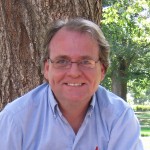非常抱歉,
你要访问的页面不存在,
非常抱歉,
你要访问的页面不存在,
非常抱歉,
你要访问的页面不存在,
验证码:

职称:Associate Professor
所属学校:University of North Carolina at Chapel Hill
所属院系:THE DEPARTMENT OF ANTHROPOLOGY
所属专业:Anthropology
联系方式: (919) 962-9348
Ph.D. University of California Santa Barbara, 1996, Associate Professor; Research Associate of the Research Laboratories of Archaeology
My research interest include the prehistory of Andean South America, evolution of complex political organizations (chiefdoms, states and empires), causes and consequences of warfare, origins of social stratification, cultural ecology, settlement pattern analysis, and the prehistory of southwestern North America. I began working in Peru in 1985 and have participated in fieldwork on the north, central, and south coast on a wide range of time periods and site types. My dissertation research at the University of California, Santa Barbara focused on the origins of the Moche State, one of the largest and most complex indigenous political organizations to have developed in the New World. Fieldwork for my dissertation was conducted in 1990-91 and involved a systematic pedestrian survey of portions of the Moche Valley on the north coast of Peru. Eventually, through the analysis of settlement data on over 900 archaeological sites, I was able to reconstruct a sequence of political development in the Moche Valley from the formation of the first autonomous village in the Late Preceramic Period (2500-1800 B.C.) to the zenith of the Moche between A.D. 400 and 800. The ultimate goal of the dissertation was to evaluate general theories of state evolution in light of this sequence of development. I received my Ph.D. in 1996. Although my primary regional specialty is Andean South America, I have many years of experience in several areas of western North America, including the southwest, central Rockies Mountains, Fremont culture area, northern and central Plains, Santa Barbara Channel, and southeast Alaska. Most of my experience in North America has been in the southwest. From 1993 to 1998, while working on my dissertation, I directed several large archaeological projects in the southwestern US for the Zuni Archaeology Program (ZAP) and Soil Systems, Inc (SSI). For SSI, I led the investigation of over 60 archaeological sites ranging in date from the Middle Archaic Period (4800-3000 B.C.) to the Historic Era. The project addressed a wide range of issues including archaic period land use patterns, Puebloan agricultural strategies, community organization, and Puebloan cannibalism and warfare. The most surprising and controversial find during the project was the discovery of the disarticulated, butchered, and partial burned remains of seven people on the floors of two pithouses. Result of collaborative research with Dr. Patricia Lambert (Utah State University) and Banks Leonard (SSI) revealed a possible outbreak of cannibalism and warfare in the Mesa Verde region in the late A.D. 1100s.